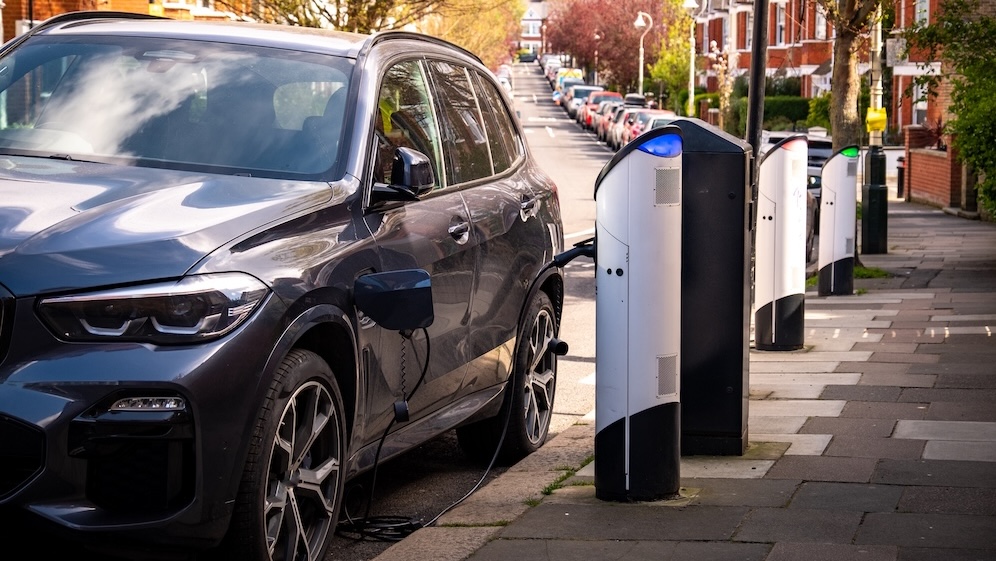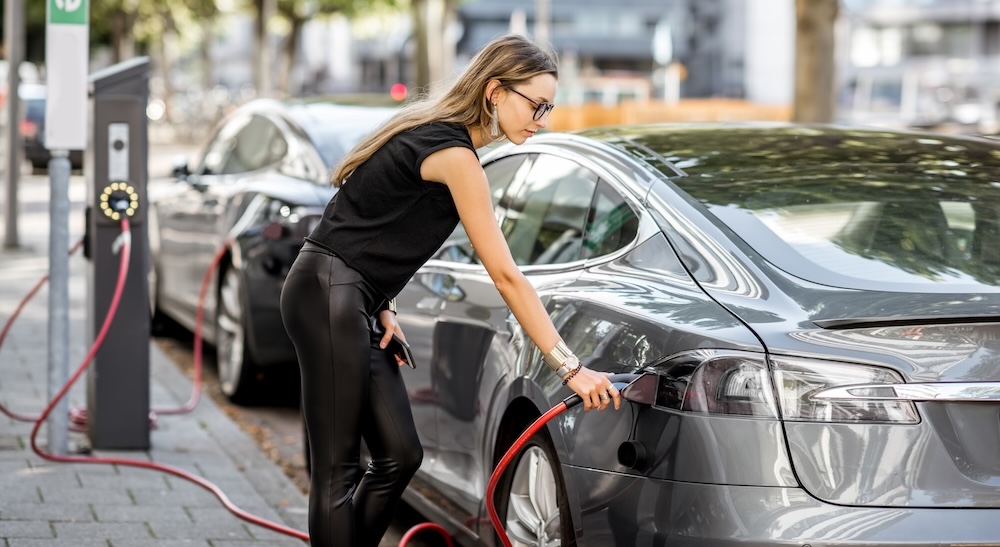Should I buy an EV? Pros and cons of owning an electric vehicle
Thinking about buying an electric vehicle (EV)? You’re not alone. 66% of non-EV drivers have considered purchasing or leasing an EV in the past 12 months.
There’s plenty to consider before taking the leap from petrol and diesel vehicles to electric, including where you live, your driving habits and access to charging.
To help you answer the question, ‘should I buy an EV?’, this guide covers all the EV pros and cons to consider.
How far do you drive?
Range anxiety is a common barrier to owning an EV, with 40% of UK drivers not believing a full EV battery will travel as far as a full tank of diesel or petrol.
But as time has gone on and technology has advanced, this concern has been disproven. The majority of electric vehicles in the UK today have a range of 150-300 miles per charge. Since drivers in the UK travel an average of 135 miles per week, it’s unlikely that range will cause real world challenges.
However, if you do regularly drive hundreds of miles per week, resources like Zapmap allow you to plan public charging points along your route.
Charging your EV: Pros and cons
Charging at home: one of the pros of electric vehicles
One of the most significant electric vehicle benefits is the ease (and price) of charging at home. Installing a charger at your home allows you to charge your vehicle overnight, when the rates are usually lower. As well as off-peak rates, many energy providers have EV tariffs that can help drive down costs further.
Public chargers: a common blocker to owning an EV
If charging your EV at home isn’t a possibility (most commonly due to a lack of off-street parking), public charging stations are becoming increasingly common and easy to access.
While public charging tends to be more expensive than charging at home, some companies offer electrical vehicle benefits such as discounted on-site charging for employees. So, it’s worth looking into your options for public charging outside of petrol stations and car parks if that’s something you’re likely to rely on.
Even if you do have a charger at home, you’re likely to still need to charge on the go if you’re planning a very long journey. In these instances, you’ll have to factor in longer breaks in your trip as it can take 40-60 minutes (or sometimes longer) to charge your EV, depending on the capacity of your battery and the charging speed of the station you’re using.
If time is a concern, fast charging stations are available in many locations. However, using fast chargers on a regular basis can damage to your EV’s battery over time, meaning they should be used sparingly and strategically.
What are the costs of owning an EV?
One of the biggest considerations before switching to electric, is the total cost of owning an EV. While the initial cost of purchasing an EV is a barrier for over half (53%) of non-EV drivers, 43% of EV owners cite low running costs as one of the pros of electric vehicles.
In fact, the reduced cost of running an EV compared to an ICE vehicle can quickly offset the increased purchase price, so it’s important to consider the full picture when thinking about cost of EV ownership.
1) Purchase price: a misplaced blocker to owning an EV
When buying a new EV, it’s likely that you’ll pay more for that vehicle upfront, compared to its petrol or diesel counterpart.
But the good news is that the gap is closing. While a new EV costs on average 22% more than a new internal combustion engine (ICE) vehicle (as of June 2025), this figure is 12% lower than the previous year. Plus, there are more electric models than ever before reaching cost parity with their petrol and diesel counterparts.
As more EVs enter the market, the choice in the used EV space also increases, making owning a used EV more accessible than ever.
2) Lower running costs: an electric vehicle benefit
One of the biggest pros of electric vehicles is that they are often cheaper to run than petrol or diesel vehicles. In fact, charging a medium-sized EV at home can cost as little as half the price of filling up an equivalent car with petrol3.
If you live (or regularly drive) somewhere that enforces Clean Air Zones, you’ll enjoy another one of the big electric vehicle benefits – being exempt from most emission charges. Plus, if you often drive in London, your EV may be entitled to a discount on congestion charges, too.
3) Insurance drives up the cost of owning an EV – for now
Insuring an EV is typically more expensive than insuring an ICE vehicle, due to factors like the availability and cost of parts. According to Go Compare, this can make EV insurance premiums an average of £117 more expensive compared to equivalent ICE vehicles.
However, experts are predicting that the cost of insuring an electric vehicle will decrease as parts become more readily available and affordable, and more mechanics specialise in EV technology.
4) Servicing and maintenance bring down the cost of owning an EV
Despite the potential higher cost of purchasing and insuring an EV, a benefit of electric vehicles according to EV drivers is lower maintenance costs.
Unlike ICE vehicles, EVs have no need for the oil changes, oil filters or air filters that are included in most petrol and diesel services. Plus, one of the pros of electric vehicles is their regenerative braking systems, which can reduce the need for brake pad and disc replacements.
There’s some evidence that EVs’ tyres may wear more quickly than those of ICE vehicles, likely due to the increased weight of electric vehicles. However, there are currently mixed reports on this.
It’s also true that battery replacement can be a significant cost of owning an EV. In 2021, the cost of replacing an average EV battery was £87 per kWh, making a Tesla Model S battery cost around £8,900 before labour. However, most EV batteries should last between 10-20 years and are often covered by warranty for the first eight, giving you additional peace of mind when owning an EV.
Due to their reduced number of components, some manufacturers advise that their EV models need to be serviced less frequently. For example, Renault recommends having a service carried out every 18,000 miles for its electric model, Zoe, compared to every 9,000 miles for its petrol cars. However, it’s essential that you check your manufacturer’s guidance when it comes to maintenance and servicing to avoid more expensive problems down the road.
5) Resale value: a lesser-known blocker to EV ownership
All new cars depreciate in value, particularly over the first 1-3 years, and the same is true of EVs. However, as it stands EV’s are depreciating faster than ICE vehicles for a number of reasons, including their initial higher price point and rapidly advancing technology.
Myths around battery life and range may also contribute to the depreciation rate of EVs. However, as we move towards the government’s wider EV adoption goals, it’s hoped that a better public understanding of the realities of owning an EV may help used models retain their value.
The future is electric and owning an EV will become more accessible
Whether you’re still on the fence or you’re ready to make the switch, the trajectory of vehicles in the UK is electric. The UK Government’s Zero Emission Vehicle mandate means that the sale of new ICE vehicles will be phased out over the next decade. Manufacturers must legally ensure 80% of new cars and 70% of new vans sold are electric by 2030, increasing to 100% by 2035.
That will likely mean improved infrastructure for EVs as time goes on, ensuring the pros of electric vehicles will soon outweigh the cons.
Conclusion: Should I buy an EV?
This guide has covered many of the EV pros and cons that may influence your decision to buy an EV.
Electric vehicle benefits include the price of charging (particularly at home), exemption from Clean Air Zone charges, and the reduced cost of servicing over time.
While it’s often the case that the initial purchase price and insurance premiums are higher for EVs than for ICE vehicles, these costs can often be balanced by the savings in other areas, including the reduced cost of charging over refueling.
Our data shows that 95% of people who currently own or lease a new EV are likely to choose electric again for their next vehicle, suggesting that the pros of electric vehicles are clear to those who drive them.
Find everything you need to know about buying and owning electric vehicles on our EV Hub.




